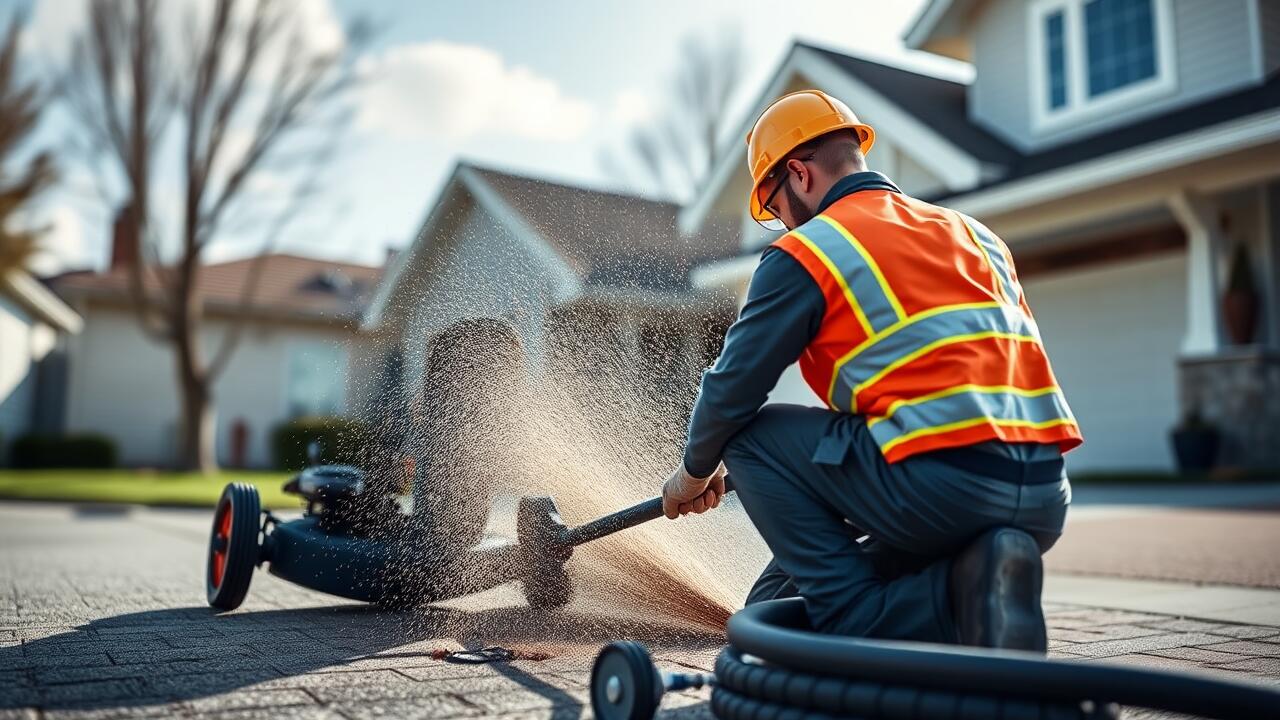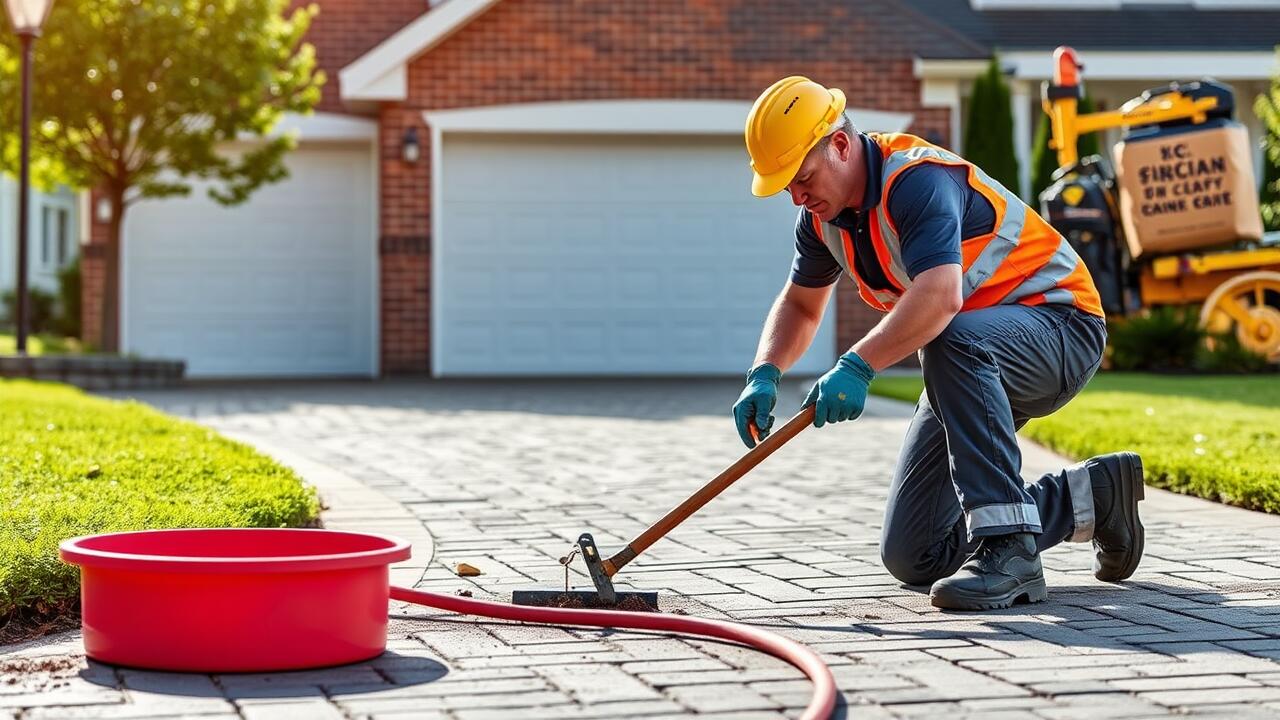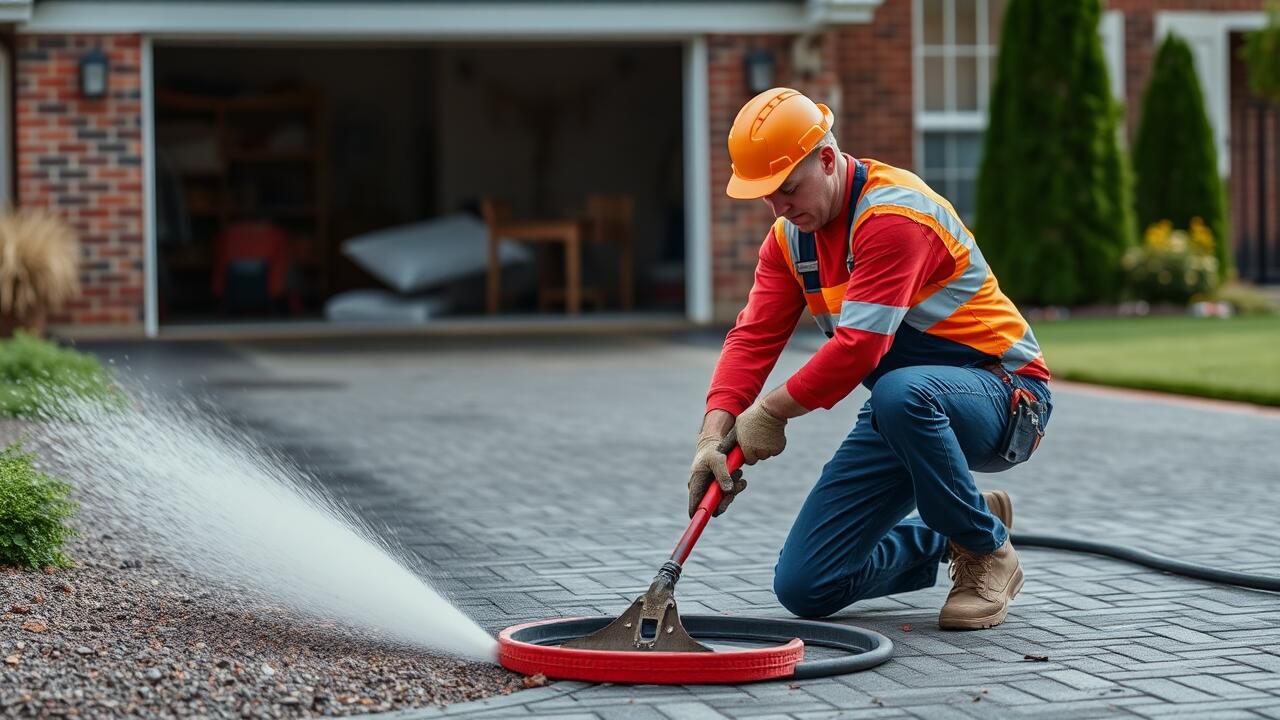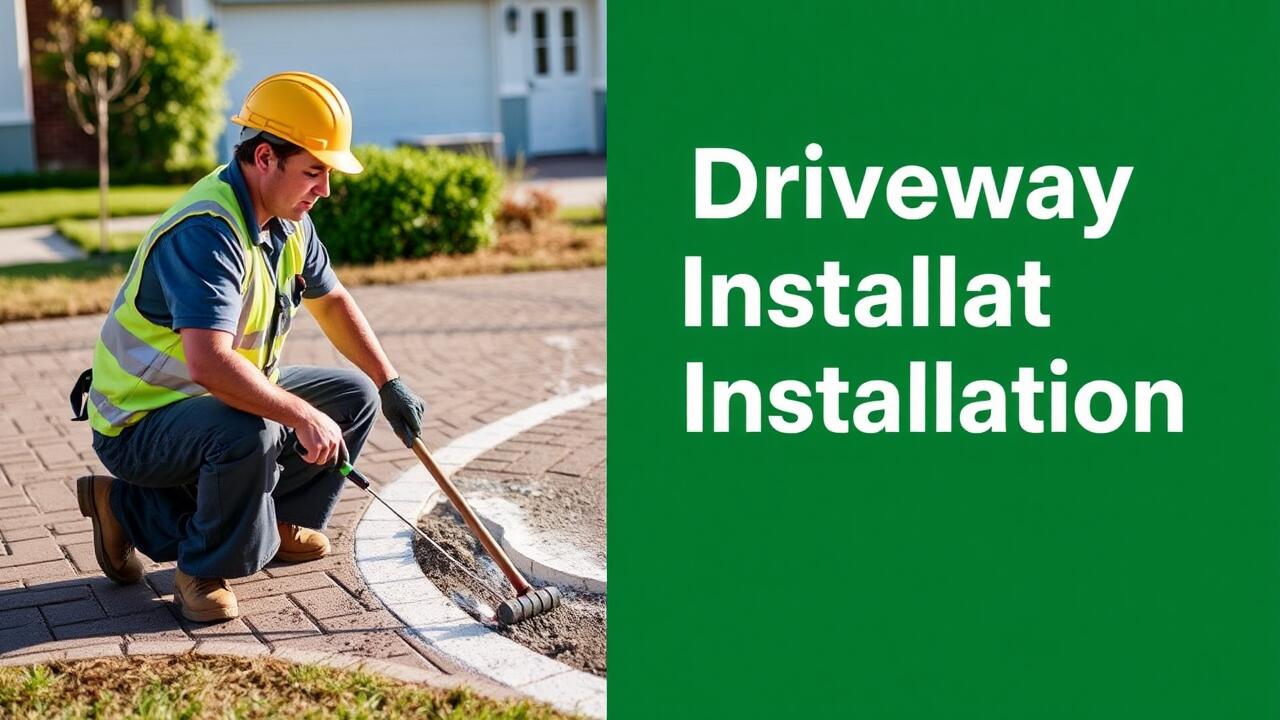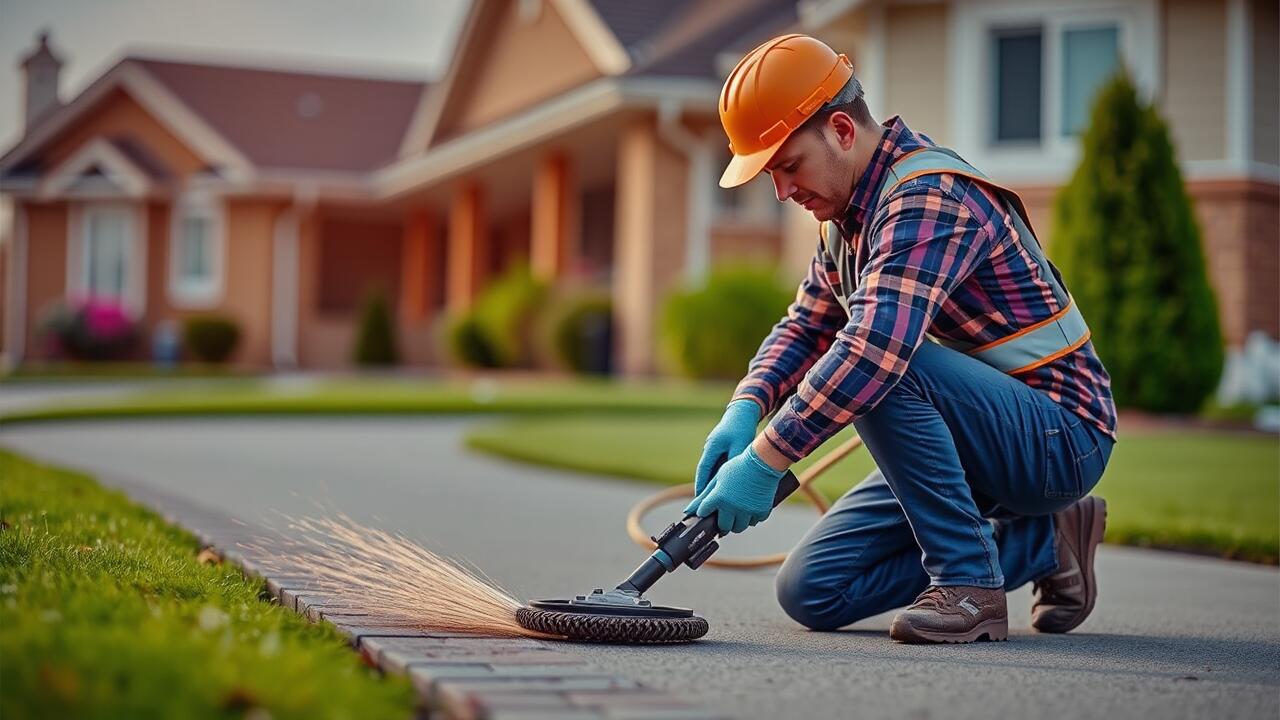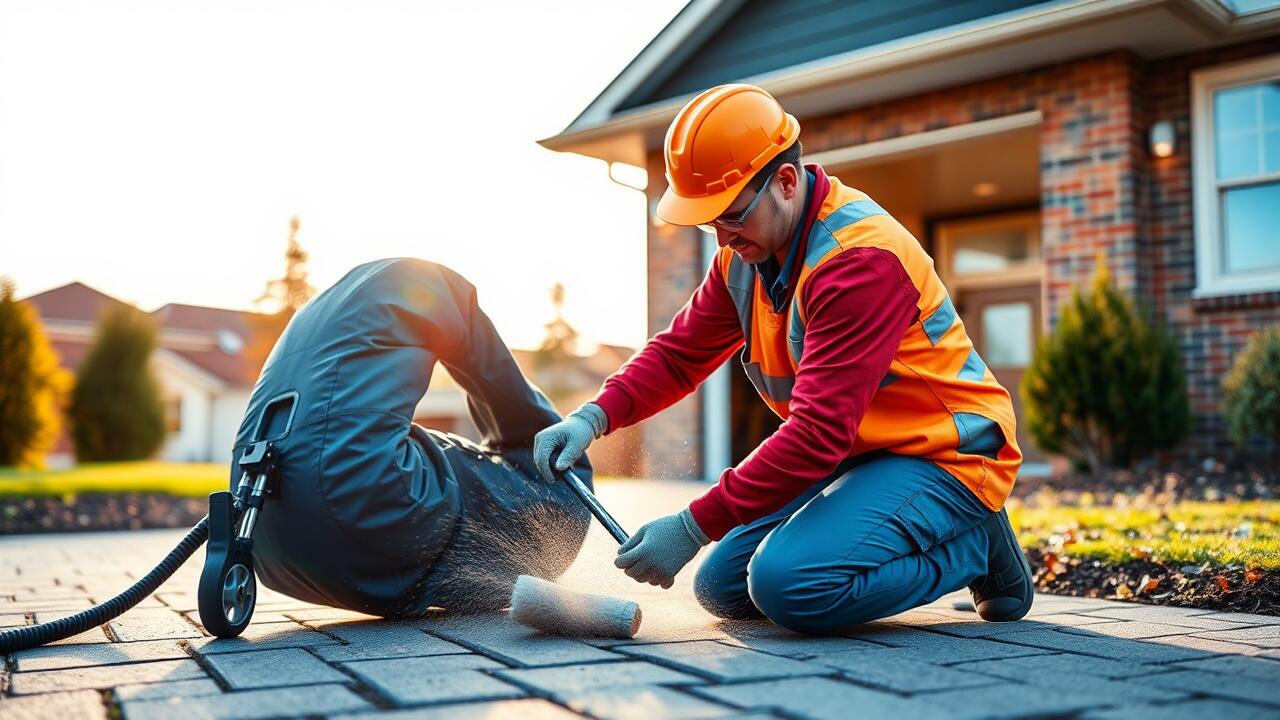
Estimating Material Quantity
When estimating the material quantity needed for a new driveway, precise measurements are vital. Begin by measuring the length and width of the area designated for the driveway. Multiply these dimensions to determine the total square footage. For common materials like asphalt or concrete, consider the thickness you plan to use, as this will influence the volume of material required. It's also wise to add an extra 10% to account for waste and errors during installation.
In addition to the measurements, factor in the type of material you wish to use, as different materials have varying coverage rates. Whether you're considering asphalt, concrete, or gravel, each option will require a specific amount for optimal installation. Driveway Installation in Estrella, Phoenix, may present unique challenges due to local climate conditions or soil quality, so it's crucial to ensure that your material choices align with these factors to achieve a durable outcome. Planning ahead will help you avoid surprises and ensure a successful installation.
Determining the Right Amount for Your Driveway
To determine the right amount of materials needed for your driveway, start by measuring the area where the driveway will be installed. You should use a tape measure to find the length and width of the space, then multiply these dimensions to calculate the total square footage. This step is crucial as it directs the volume of materials required for a smooth and stable surface. Keep in mind that various materials may necessitate different calculations based on their specific requirements.
When considering Driveway Installation in Desert View, Phoenix, it's essential to account for factors such as drainage and soil type. These elements can impact the amount of material needed, particularly if additional base layers or grading are required. Adding a few extra square feet to your initial measurement allows for any errors or adjustments that might come up during the installation process. Proper preparation can save you time and expense in the long run.
Seasonal Price Fluctuations
Seasonal fluctuations can significantly impact the cost of driveway materials and labor. Typically, prices tend to rise during peak construction seasons, such as spring and summer, when demand is at its highest. Homeowners seeking Driveway Installation in South Mountain, Phoenix may find that waiting until the off-peak months can yield considerable savings. Late fall and winter often see reduced demand, allowing for better pricing and availability of materials.
Weather conditions play a vital role in scheduling driveway installations. Harsh winter weather can delay projects and lead contractors to increase their prices to accommodate for complications. Those planning Driveway Installation in South Mountain, Phoenix should consider how seasonal changes might affect both the timing of their project and the final cost. Proactive scheduling around these fluctuations can help ensure a smoother installation process and budget-friendly outcome.
Best Times to Install Driveways
Choosing the right season for driveway installation can significantly affect costs and the quality of the work. Spring and fall are often considered ideal times for projects like this. The moderate temperatures and lower chances of rain create optimal conditions for the curing processes involved in various materials. Homeowners should consider scheduling the work during these seasons to avoid the extreme heat of summer or the cold of winter, both of which can hinder the installation.
For those looking into Driveway Installation in South Mountain, Phoenix, it's crucial to keep local climate considerations in mind. Summer temperatures can lead to quick drying of materials, increasing the risk of cracking. During winter, frost can disrupt the installation process. Being aware of these factors can help homeowners choose the best time for driveway installation, ensuring a durable and aesthetically pleasing result.
Maintenance and Lifespan Costs
The longevity of a driveway significantly impacts its overall cost. Different materials have varied lifespans, which affects maintenance and replacement expenses over time. For instance, concrete driveways typically last longer than asphalt, often requiring fewer repairs. However, asphalt driveways come with lower initial costs but may require resurfacing after a certain period, increasing long-term expenditure. Understanding these differences helps in making an informed choice.
Regular maintenance plays a crucial role in extending a driveway's life. Sealing, cleaning, and addressing minor damage promptly can prevent major issues down the line. Homeowners considering Driveway Installation in South Mountain, Phoenix, should account for these maintenance costs when budgeting. Knowing the expected lifespan of the chosen material allows for better financial planning and ensures the driveway remains in good condition for years to come.
Long-term Expenses for Various Materials
When considering long-term expenses for different materials used in driveway installation, it's essential to evaluate both the initial cost and future maintenance requirements. Asphalt is generally more affordable upfront but may need resealing every few years to maintain its condition. On the other hand, concrete offers a longer lifespan and typically requires less frequent maintenance, making it a more cost-effective choice in the long run for homeowners in South Mountain, Phoenix.
Another factor to consider is the potential for repairs. Pavers provide a unique aesthetic but might require individual units to be replaced if they become damaged. In contrast, gravel driveways are low in initial cost but can incur expenses regarding replenishment and weed control over time. Each option presents variables that impact the overall investment, making it important for homeowners to think about both immediate and future costs during the planning of driveway installation in South Mountain, Phoenix.
FAQS
What factors should I consider when estimating the cost of a new driveway?
When estimating the cost of a new driveway, consider factors such as the type of material you plan to use, the size and shape of the driveway, labor costs, and any additional features like edging or drainage systems.
How do I determine the right amount of material for my driveway?
To determine the right amount of material, measure the length and width of the driveway area. Multiply these dimensions to find the total square footage, and then factor in the depth of the material to calculate the volume needed.
Are there seasonal price fluctuations for driveway materials?
Yes, there can be seasonal price fluctuations for driveway materials due to demand and availability. Prices may be lower during off-peak seasons, such as late fall or winter, compared to the busy spring and summer months.
When is the best time to install a new driveway?
The best time to install a new driveway is typically during mild weather conditions in spring or fall. These seasons provide ideal temperatures for curing materials and reduce the risk of weather-related delays.
What are the long-term maintenance costs associated with different driveway materials?
Long-term maintenance costs vary by material. For example, asphalt may require sealing every few years, while concrete may need periodic cleaning and resealing. Gravel driveways may need replenishing, while pavers typically have lower maintenance costs.
